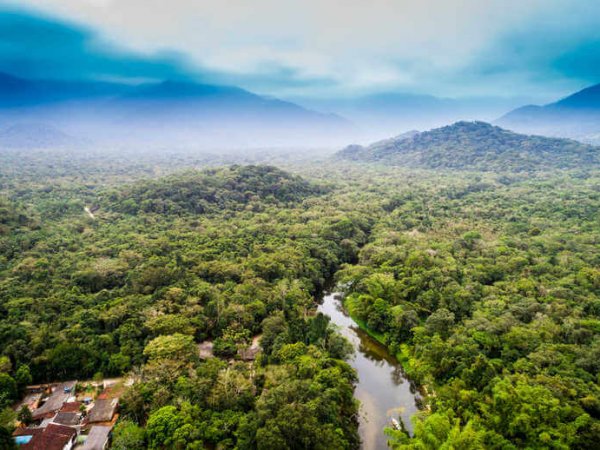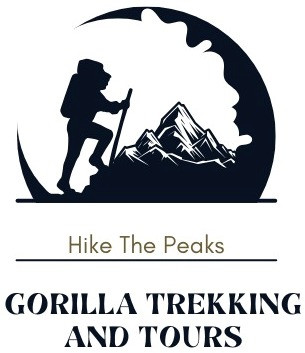DR CONGO TRAVEL INFO & GUIDE
[/cz_title]Country Overview & Stats
The Democratic Republic of the Congo, French: République démocratique du Congo [kɔ̃ɡo]), also known as DR Congo, the DRC, or simply the Congo, is located in Central Africa. It is sometimes anachronistically referred to by its former name of Zaire, which was its official name between 1971 and 1997. It is, by area, the largest country in Sub-Saharan Africa, the second-largest in all of Africa (after Algeria), and the 11th-largest in the world. With a population of over 78 million, the Democratic Republic of the Congo is the most populous officially Francophone country, the fourth-most-populous country in Africa, and the 16th-most-populous country in the world. Currently, eastern DR Congo is the scene of ongoing military conflict in Kivu, since 2015.
The Democratic Republic of the Congo is named after the Congo River, which flows throughout the country. The Congo River is the world’s deepest river and the world’s second largest river by discharge.

CONGO SAFARI TRAVEL INSIGHTS & GUIDE
Planning on a Safari Journey to DR Congo for Lowland and Mountain Gorilla Trekking?, this travel info will be of great importance to ensure you adapt to the environment and regulations of the Democratic Republic of Congo
[/cz_title][cz_gap height=”32px”]Congo Tourist/Travel Visa
[/cz_title]A travel visa is required if one is to enjoy a safari holiday in DR Congo. These visas MUST be obtained prior to arriving in the country. Thanks to the Immigration offices that offer the on-time Visa services to all intending travelers. Visit and Tour can also enable you to obtain your visa from the comfort of your home country as you plan your trip without hassling to reach out to the immigration offices. These visa services from our company only cost US$ 120 per visa. You will have a visa acceptance form with a reference number on it and an invoice with your travel itinerary booked with the national park. Once you reach the border with DR Congo you will present both documents and you will receive a stamp in your passport
Money & Currency Guide
[/cz_title]The official local currency used in DR Congo is the Congolese Franc and the American dollar.
The rates of June 2019 states the currency rate as below;
1 Euro = 1,878.51 CDF
1 US$ = 1,660.00 Congolese Francs
Many lodge and restaurant prices are normally set in US dollars while outside of lodges (souvenirs, snacks, etc.) Congolese Francs will be necessary. Most items can be paid for in dollars as well. US dollars printed before 2004 are not accepted in the country. When you exchange money, use big notes (50 or 100 US dollar). The exchange rate of smaller notes is much lower. Make sure notes are not cut or damaged in any way. They will not be accepted. On leaving the country, we advise that you exchange Congolese Francs into Euros, dollars or pounds (obviously at a less favorable rate).
Travel Safety and Risks
[/cz_title]Every country in the world has a bit of negativity when it comes to security. When traveling to do your safari tour to Congo, Please note that traveling against the travel advice will be your own risk and you will have to sign for this before going on tour with Visit and Tour Rwanda or else you will be held responsible and accountable for any breach of security terms. Please check the status from the website of your own embassy and check if this will affect the validation your travel- or medical insurance. You might have to take alternative or additional travel and health insurances to be covered.
Mobile Phones & Internet Access
[/cz_title]Mobile Phone Communication: Mobile telephony has become very big in DR Congo. Throughout the country sim cards sell for less than a US dollar which you then can top up with credit and make reasonably priced calls to most international destinations. Please note that rural areas like Kahuzi-Biega national park and Virunga national park have very poor reception.
The country code for DR Congo is 000243 or + 243
Internet Access: Internet cafes can be found within the country although the connection is generally very slow. WIFI is sometimes available in lodges. In general DR Congo is a country for adventurous travelers and internet resources are very limited to non-existing.
Although the Democratic Republic of the Congo is no longer considered as risky as it used to be, it remains a destination for only the most seasoned, hardcore African traveller. It is not a country for the casual “tourist”: the average backpacker, holidaymaker, and especially those seeking luxury safaris or organized cultural experiences. The DRC remains one of the least developed countries in Africa.
When you travel expect that almost every activity runs late, people do not speak English and service at hotels and activities are not to be compared with more experienced tourist destinations in Africa. As well information provided by guides and rangers can be a bit poor. Be flexible and patient. Those who do brave the elements to travel here are in for quite the adventure.
START PLANNING YOUR TRIP TO CONGO
Below you can find contacts to our tour experts to help you start planning your next trip to DR Congo.
Address: Jesus is Able House Room B4, KN5 Airport Road, Kigali-Rwanda
Office: +250 781449091
Mobile: +250 788411714
Email: info@visitandtourrwanda.com.com [/cz_title][cz_gap height=”30px”]
Summary Facts & Info About DR Congo
[/cz_title]Official Name: Democratic Republic of Congo (French: République démocratique du Congo)
Area in Square Meters: 2,345,409 km2 or 905,355 sq mi
Language Used: French (National/Official), Swahili & Lingala
Population Size: 78 million people. According to the United Nations Department of Economic and Social Affairs, Population Division 2017.
Capital City: Kinshasa
Religious Sanctions: Christians (47 %), Animists (25 %) and Muslim and syncretic minorities
Geography and Climate Conditions
[/cz_title]The Democratic Republic of the Congo lies on the Equator, with one-third of the country to the north and two-thirds to the south. The climate is hot and humid in the river basin and cool and dry in the southern highlands, with a cold, alpine climate in the Rwenzori Mountains. South of the Equator, the rainy season lasts from October to May and north of the Equator, from April to November. Along the Equator, rainfall is fairly regular throughout the year. During the wet season, thunderstorms often are violent but seldom last more than a few hours. The average rainfall for the entire country is about 1,070 mm (42 in)The climate in the Eastern part of DR Congo (north & South Kivu provinces) are similar to neighboring Uganda and Rwanda. The rain season is from October to May but only short rains occur. In the dry season, it can be quite dusty so we recommend you to get a dusk mask. The rain season is a good season to travel especially to Kahuzi-Biega national park where the Lowland Gorillas tend to be closer to the headquarters than in the dry season. In Virunga national park it can get quite cold in the evening due to the high elevation. On the top of Mt. Nyiragongo it is also cold, especially at night.
ATMs & Credit Card Usage
[/cz_title]For those interested in using the ATM, you can only locate them in the major cities of the country in Kinshasha, Bukavu, and Goma. Do realize that the amount you can take out per day is sometimes limited to about $100,-. Note as well that ATMs can be empty or not working due to power cuts. Make sure you always have enough cash with you as a backup!
For Credit Cards: They are accepted at some lodges but not all. Only at major hotels and upmarket lodges can this be used and these will add an extra 5 to 10% to the bill. However, traveler cheques are not commonly used in DR Congo.
Health and Insurance in DR Congo
[/cz_title]Contact your medical doctor at least 8 weeks prior to your trip to check whether you need any vaccinations or other preventive measures. Country-specific information and advice are published by the National Travel Health Network and Centre, and useful information about healthcare abroad, including a country-by-country guide of reciprocal health care agreements with the UK, is available from NHS Choices.
Medical facilities in Congo are limited, particularly outside major towns. Medical help at the scene of an accident is likely to be equally scarce. In the case of a serious accident or illness, evacuation by air ambulance may be required. Make sure you have adequate travel health insurance and accessible funds to cover the cost of any medical treatment abroad and/or repatriation. We highly recommend you to get good travel insurance that covers traveling to countries with a piece of negative travel advice.
Electricity, Phone Charging & Voltage
[/cz_title]Power and Electricity Volts: The Democratic Republic of the Congo has reserves of petroleum, natural gas, coal, and a potential hydroelectric power generating capacity of around 100,000 MW. The Inga Dam, alone on the Congo River, has the potential capacity to generate 40,000 to 45,000 MW of electric power, sufficient to supply the electricity needs of the whole Southern Africa region. Ongoing uncertainties in the political arena and a resulting lack of interest from investors has meant that the Inga dam’s potential has been limited.
Charging your camera and phone: You can charge your cameras, phones and other electric items in most hotels. If you bring a couple of chargeable items you might consider bringing an adaptor with extra outlets since the amount of outlets is often limited. We’d advise you to bring extra batteries for your camera since some hotels don’t have power and power cuts might occur.
